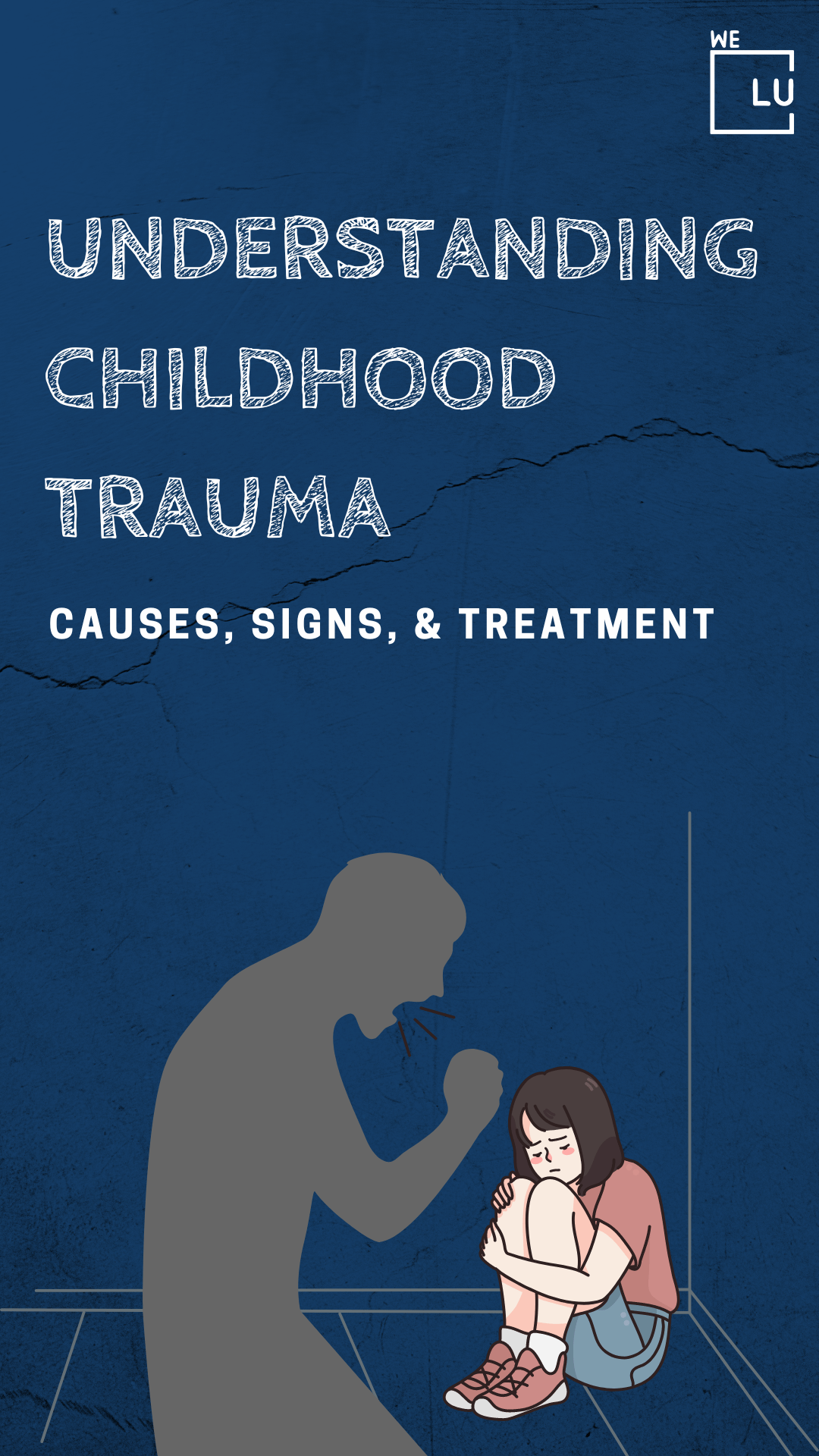What is PTSD?
PTSD meaning Post-Traumatic Stress Disorder is a mental health problem that some people develop after witnessing or experiencing a life-threatening event, like combat, a car accident, a natural disaster, or sexual assault. It’s common to have upsetting memories, feel on edge, or have difficulty sleeping after this type of event. If symptoms last longer than a few months, it may be PTSD. The good news is that there are effective treatments. PTSD and addiction are usually experienced together when there is a history of chronic substance abuse. In addition, PTSD is often followed by depression, substance abuse, addiction, or other anxiety disorders.
According to the National Center for Biotechnology Information (NCBI) [1], exposure to traumatic experiences, especially those happening in childhood, has been linked to substance use disorders (SUDs), including dependence and abuse. SUDs are also highly comorbid with Posttraumatic Stress Disorder (PTSD) and other mood-related psychopathology. Ideally, people with PTSD and addiction should have both issues treated at the same time. Moreover, treatment may consist of both therapy and medication.
Skip to:
Learn More:
Overall, 3.6% of U.S. adults have PTSD [2]. However, this rate is more crucial among military veterans and those whose occupations increase the risk of exposure to traumatic events, such as emergency medical personnel, firefighters, and police. About one-half of all U.S. adults will experience at least one traumatic event in their lives, but most do not develop PTSD. People who experience PTSD may have persistent, terrifying memories and thoughts of the events, experience sleep problems, feel numb or detached, or maybe easily startled. In severe forms, PTSD can significantly damage a person’s capacity to function at home, at work, and socially.

Link Between PTSD And Addiction
Those who struggle with PTSD may feel frustrated and hopeless. Unfortunately, many turn to unhealthy coping mechanisms such as drinking and using other substances. When drugs or alcohol are used to self-medicate PTSD symptoms, the disorder only becomes more severe. As a central nervous system depressant, alcohol and opiates can worsen depression and anxiety and interfere with normal sleep patterns.
Treating PTSD will not stop alcohol and drug abuse. However, addiction may continue to persist given that the substance has hijacked our reward system. As a result, it causes us to develop enduring tolerance and withdrawal symptoms. In this situation, PTSD and addiction must be addressed at the same time for complete recovery. Otherwise, substance abuse will undermine all other treatments by impairing memory, perception, and judgment.
After a traumatic event, people often report using alcohol or drugs to relieve their symptoms of anxiety, irritability, and depression. The brain of someone diagnosed with PTSD or following a traumatic event produces fewer endorphins. Drugs and alcohol may relieve these symptoms because drinking compensates for deficiencies in endorphin activity following a traumatic experience.
Within minutes of exposure to a traumatic event, there is an increase in the level of endorphins in the brain. During the time of the trauma, endorphin levels remain raised and help numb the emotional and physical pain of the trauma. However, after the trauma is over, endorphin levels slowly decrease and this may lead to a period of endorphin withdrawal that can last from hours to days. This period of endorphin withdrawal may produce emotional distress and contribute to other symptoms of PTSD. This is according to the National Center for Biotechnology Information (NCBI) [3].
Signs Of PTSD And Addiction
- Behavioral changes, such as irritability and easily angered
- Trouble sleeping and concentrating
- Feeling numb and avoiding places, people, or activities
- Reliving the trauma, having nightmares, and experiencing flashbacks

Signs Of Drug Abuse
- Being argumentative when questioned about substance use
- Changes in spending habits and issues with finances
- Obvious changes in behavior
- Reduced appetite and weight loss
- Lack of motivation and poor work performance
- Looking sick, such as bloodshot eyes and changes in skin tone
Causes of PTSD
Many different dangerous or life-threatening events might cause someone to develop PTSD. As with most mental health problems, PTSD is probably caused by a complex mix of:
- Stressful Events: Including the amount and severity of trauma you’ve gone through in your life
- Inherited Mental Health Risks: Such as a family history of anxiety and depression
- Inherited Traits Of Your Personality: Often called your temperament
- The way your brain controls the chemicals and hormones your body releases in response to stress
PTSD Risk Factors
- Getting hurt
- Childhood trauma
- Living through dangerous events and traumas
- Seeing another person hurt, or seeing a dead body
- Feelings of helplessness, horror, or extreme fear
- Having little or no social support after the event
- Dealing with extra stress after the event, such as loss of a loved one, injury and pain, or loss of a home or job
- Having a history of mental illness or substance abuse
Factors That May Promote Recovery After Trauma
- Seeking out support from other people, such as family and friends
- Finding a support group after a traumatic event
- Learning to feel good about one’s actions in the face of danger
- Having a positive coping plan, or a way of getting through the bad event and learning from it
- Being able to respond and act effectively despite feeling fear
PTSD Symptoms
Symptoms of PTSD usually begin soon after the traumatic event, but they may not appear until months or years later. They also may come and go over many years. However, if the symptoms last longer than four weeks, cause great distress, or interfere with work or home life, an individual might have PTSD.
There are four types of PTSD symptoms, but they may not be the same for everyone. Each individual may experiences symptoms in their own way.
- Reliving The Event (also called re-experiencing symptoms): Thoughts or memories of the traumatic event can come back at any time. They can feel very real and scary. For example:
- A person may have nightmares
- A person may feel like you are going through the event again, also known as a flashback
- A person may hear, see, or smell something that causes to relive the event. This is called a trigger. For example, news reports, seeing an accident, or hearing fireworks are examples of triggers.
2. Avoiding Things That Remind You Of The Event: A person may try to avoid places or people that remind them about the trauma event. For example:
- A person may avoid crowds because they feel dangerous
- May avoid driving if a person were in a car accident or if the military convoy was bombed
- If in an earthquake, a person may avoid watching movies about earthquakes
- May keep very busy or avoid getting help so a person doesn’t have to think or talk about the event
3. Having More Negative Feelings And Thoughts Than Before The Event: The way individuals think about themselves and others may become more negative because of the trauma. For example:
- Feeling Numb: Unable to have loving or positive feelings toward other people
- Forgetting about parts of the traumatic event or not be able to talk about them
- Thinking the world is downright dangerous, and no one can be trusted
- Feeling shame or guilt about the event
4. Feeling On Edge Or Keyed Up (also called hyperarousal): Jittery, or always alert and on the lookout for danger. A person might suddenly become irritable or angry. For example:
- Hard time sleeping
- Finding it hard to concentrate
- Getting startled by a loud noise or surprise
- Acting in unhealthy ways, like smoking, abusing alcohol or drugs, or driving aggressively
Dual Diagnosis Treatment As An Integral Part Of PTSD And Addiction Treatment
In the past, it was normal to treat comorbid PTSD and addiction separately. In fact, substance use disorder or addiction was often treated first, and the treatment of PTSD will be delayed until the person was sober for a period of time.
Now, treatment programs have changed. The integrated model of treatment is used to address both PTSD and addiction at the same time. The person may see the same clinician for both treatments rather than seeing two separate professionals.
This program serves to address the complexity of comorbid symptoms since some may overlap. Moreover, the person can address emotions and triggers linked with their addiction, which can help maintain and foster recovery.

There are several reasons why addressing trauma symptoms and substance abuse problems simultaneously is necessary. There is a strong developmental and neurological link between PTSD and addiction. Integrated treatment reduces relapse rates, a major challenge in substance abuse treatment.
What Is Dual Diagnosis?
The exact definition of dual diagnosis (also referred to as co-occurring disorders) can differ between institutions. However, it is generally defined as the specific treatment of someone who has been diagnosed with having a substance abuse disorder and a mental health disorder at the same time. There is no distinction of whether the mental condition led to substance abuse or vice versa. Addiction treatment professionals understand that mental health and substance abuse have a complex relationship that is difficult to extricate from one another.
While there is no single best treatment for comorbid PTSD and addiction, research has shown that successful dual-diagnosis treatment uses an integrated approach. Standard therapeutic approaches include cognitive-behavioral therapy (CBT), cognitive processing therapy (CPT), and prolonged exposure therapy (PET).
Find The Right Treatment Plan At We Level Up Florida
If you or someone you love is struggling with PTSD and addiction, get them the safest help they need and deserve. We Level Up Florida offers primary mental health PTSD treatment coupled with secondary substance abuse disorders. Our team is specially trained to provide a co-occurring dual diagnostic approach to PTSD and Addiction Treatment therapy. Contact our team at We Level Up Florida today for a free mental health assessment!



